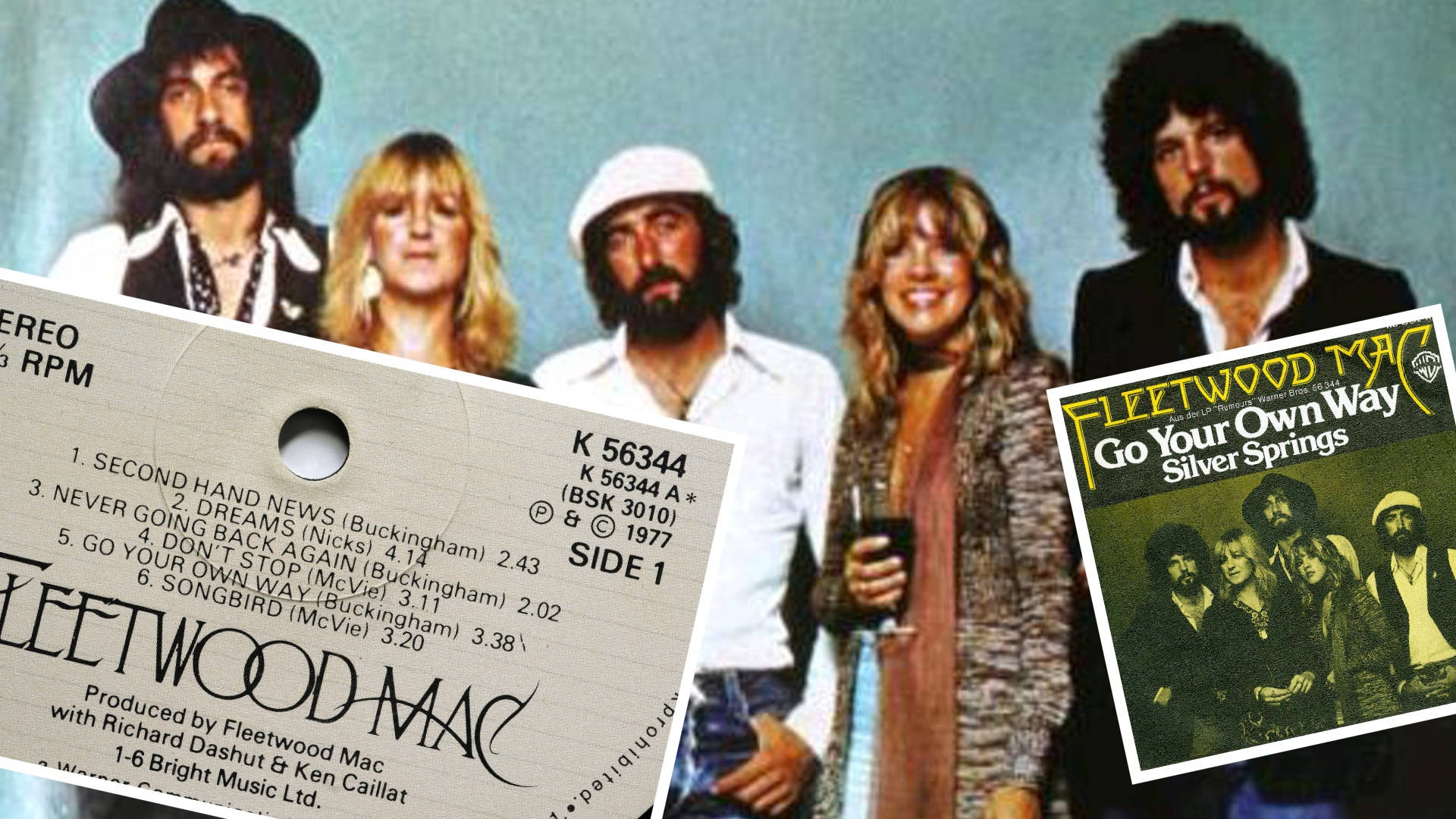💔 Fleetwood Mac – “Go Your Own Way” (1976): An Anthem of Heartbreak and Defiance Forged in Fire ✨

Fueled by profound personal heartbreak and a brutal commitment to raw honesty, “Go Your Own Way” became the emotional firestarter and defining single of Fleetwood Mac’s iconic 1977 album, Rumours. More than just a song, it was a searing, real-time chronicle of the band’s fracturing relationships, most notably the tumultuous breakup between its primary songwriters and vocalists, Lindsey Buckingham and Stevie Nicks.

The Genesis of Raw Emotion: A Breakup Immortalized
“Go Your Own Way” was largely written by Lindsey Buckingham as a direct response to his bitter separation from Stevie Nicks. The extraordinary tension that permeates the track stems from the fact that all band members, including the other estranged couple Christine and John McVie, were living through their own personal crises while recording Rumours. This collective emotional turmoil was channeled directly into the music, making the album, and “Go Your Own Way” in particular, a unique document of heartbreak. Buckingham’s lyrics are remarkably direct and accusatory, laying bare his pain and resentment, while simultaneously expressing a desperate need for independence. The raw honesty was palpable, creating a deeply personal narrative that resonated universally.

A Clash of Titans: Musicality Reflecting Emotional Discord
Musically, “Go Your Own Way” is a masterclass in controlled chaos, perfectly mirroring the band’s internal strife. Lindsey Buckingham’s fierce, intricate guitar work is the undeniable driving force, characterized by its distinctive arpeggiated riff and biting, aggressive solos. His performance on this track is a tour de force, showcasing his unique finger-picking style and his ability to infuse technical brilliance with raw emotion. Mick Fleetwood’s powerful, yet nuanced drumming provides the defiant, almost relentless rhythm, while John McVie’s bassline is both sturdy and melodic.
However, the true, heartbreaking genius of the song lies in the vocal interplay. Buckingham’s lead vocals convey anger, frustration, and a desire for distance, while Stevie Nicks’ harmonies – recorded by Nicks herself, despite the lyrics being directly aimed at her – clash beautifully with his delivery. Her ethereal voice provides a haunting counterpoint, adding layers of sorrow and complexity to Buckingham’s pointed accusations. This forced collaboration, where personal anguish was translated into musical perfection, gives the song an unparalleled tension and emotional depth. It wasn’t merely a song; it was a public unraveling set to rock’s most defiant and unforgettable rhythm.
An Anthem of Freedom and Fallout: Enduring Legacy

Upon its release as a single, “Go Your Own Way” quickly became a massive hit, charting at No. 10 on the Billboard Hot 100 in the U.S. and achieving significant success globally. Its commercial triumph was a testament to its undeniable catchiness and the raw, cathartic energy it offered. Decades later, its impact hasn’t faded; the song remains an enduring classic, a staple on classic rock radio, and a highlight of Fleetwood Mac’s live shows. It has transcended its origins as a breakup song to become a broader anthem of both personal freedom and the bittersweet fallout of major life changes. “Go Your Own Way” is still the sound of letting go – with teeth, power, and an emotional resonance that continues to captivate listeners worldwide.











